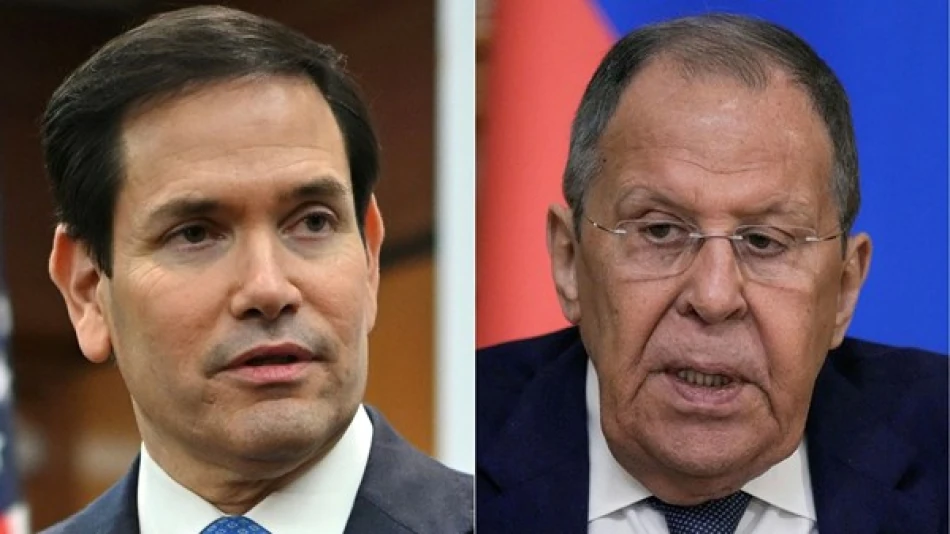
Russian FM Lavrov to Meet with US Senator Rubio on Sidelines of UN General Assembly
Lavrov-Rubio Meeting Signals Diplomatic Reset Amid Escalating Ukraine Tensions
Russian Foreign Minister Sergei Lavrov will meet his American counterpart Marco Rubio next week on the sidelines of the UN General Assembly in New York, marking a critical diplomatic moment as President Trump threatens new sanctions over the Ukraine crisis. The high-stakes encounter comes just weeks after a Trump-Putin summit in Alaska failed to produce a ceasefire, suggesting both superpowers are recalibrating their approach to one of the world's most dangerous conflicts.
A Strategic Gamble at the UN
Russian UN Ambassador Vasily Nebenzya confirmed Friday that the foreign ministers will discuss "a wide range of bilateral and multilateral issues," though no specific agenda has been set. This deliberate ambiguity reflects the delicate nature of US-Russia relations, where both sides appear to be testing the waters for potential breakthroughs while maintaining maximum negotiating flexibility.
The timing is particularly significant. The UN General Assembly has historically served as a neutral venue for superpower diplomacy during crisis periods, from the Cuban Missile Crisis to Cold War détente. By choosing this multilateral setting, both Moscow and Washington signal they want international observers—and potential mediators—present for what could be pivotal discussions.
Trump's Sanctions Threat Reshapes the Calculus
The meeting occurs against a backdrop of escalating pressure, with Trump explicitly warning of new sanctions on Russia over Ukraine. This represents a notable shift from his previous approach, suggesting either genuine frustration with Moscow's intransigence or a calculated negotiating tactic designed to extract concessions.
The Alaska summit's failure to produce even a temporary ceasefire has clearly disappointed the Trump administration, which had invested significant political capital in direct leader-to-leader diplomacy. Now, with mid-level diplomatic channels taking precedence, both sides may be signaling a more pragmatic, less personality-driven approach to crisis management.
What's Really at Stake
Beyond Ukraine, the Lavrov-Rubio meeting will likely address broader strategic competition issues that have defined US-Russia relations for the past decade. Energy markets, nuclear arms control, and spheres of influence in Eastern Europe all remain contentious topics that require ongoing management, even amid active conflict.
For global markets, the diplomatic engagement offers a glimmer of hope that the conflict might be contained rather than escalated. Energy prices, defense spending, and regional stability all hinge on whether these two powers can find common ground or at least establish clearer red lines.
The Diplomatic Chess Game Continues
Neither side appears ready for major concessions, but the willingness to maintain dialogue suggests both recognize the dangers of complete diplomatic breakdown. The open-ended agenda actually works in favor of both parties, allowing them to explore possibilities without the pressure of predetermined outcomes or public commitments.
Whether this meeting produces tangible results or merely maintains communication channels will likely depend on how much flexibility each foreign minister has been given by their respective leaders—and whether the Ukraine crisis has reached a point where both sides see stalemate as preferable to escalation.
Most Viewed News

 Layla Al Mansoori
Layla Al Mansoori






